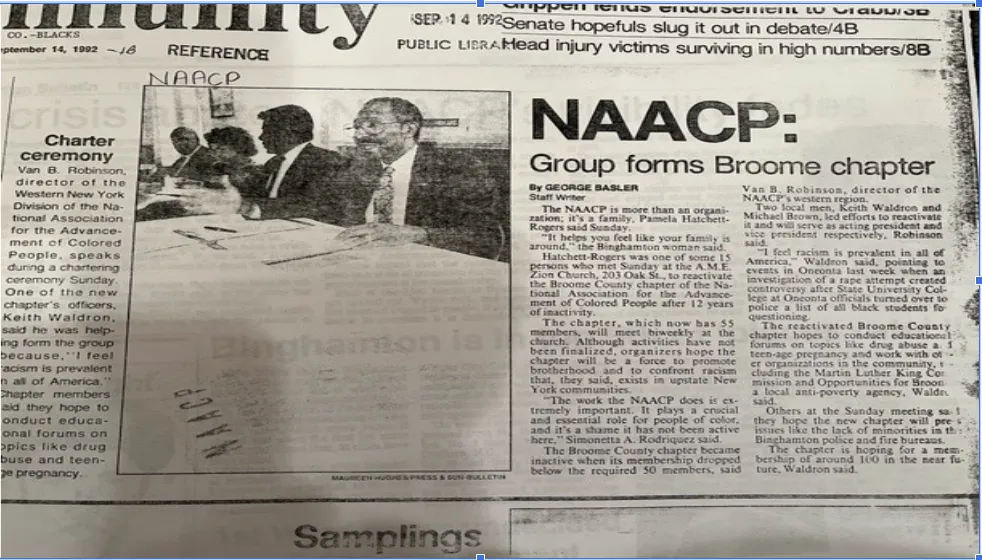Branch History
Meeting at AME "Chapel," in 1882, Broome County, African-Americans had sent a petition supporting a bill calling for Black civil rights to Fredrick Douglas. The petition was printed on the front page of his newspaper.
The Broome/Tioga NAACP branch was first organized in the 1920’s in response to renewed Ku Klux Klan activities in New York State’s Southern Tier in the wake of the notorious “Birth of a Nation.” Binghamton became the Klan’s state headquarters.
The pastor of AME Church in Binghamton was beaten on a train from Albany for not giving up his seat. He filed a civil case in 1921 and a hung jury could not decide on award of $10,000 or $5,000. The issue was settled out of court later.
.webp)
The Broome/Tioga NAACP was then first formed. Its founder and first president was Fred Hazel who had moved to Binghamton in 1913 to be head of the “colored” school above Ross Park.
The Binghamton branch and the national organization had very close ties and were in constant contact due to Klan activities in the area. A house was purchased on Sherman Street where meetings were held and which was a gathering place for the area’s African-American residents.
Mr. Hazel was the father of Melba (Hazel) Lewis of Binghamton. Now in her late 80’s Ms. Lewis is still an active member.

The Broome/Tioga NAACP was reorganized in the fall of 1992 after about ten years of relative inactivity by a branch formation active in the 1960’s and ‘70’s.
During the intervening period however, several spontaneous civil rights protests arose in angry response to such alarming incidents as the still controversial jail death of mother and worker, Shirley Harris.
Since 1992 the re-organized branch has been in more or less continuous battle over civil rights in the several communities of the New York State Southern Tier. Through a series of branch efforts, the broader community and media can no longer ignore or disregard issues of racism.
The urgency of the local struggle is compelled by dramatic increases in the area’s African-American population. Those newcomers are welcomed as pioneers in, what is unfortunately yet, a civil rights frontier.

For more than 100 years, the BTNAACP, through political pressure, marches, demonstrations and effective lobbying - has served as the voice, of African Americans.
As the nation's largest advocacy organization, our prolonged agitation for peaceful change has been felt in every aspect of American life.







.svg)

